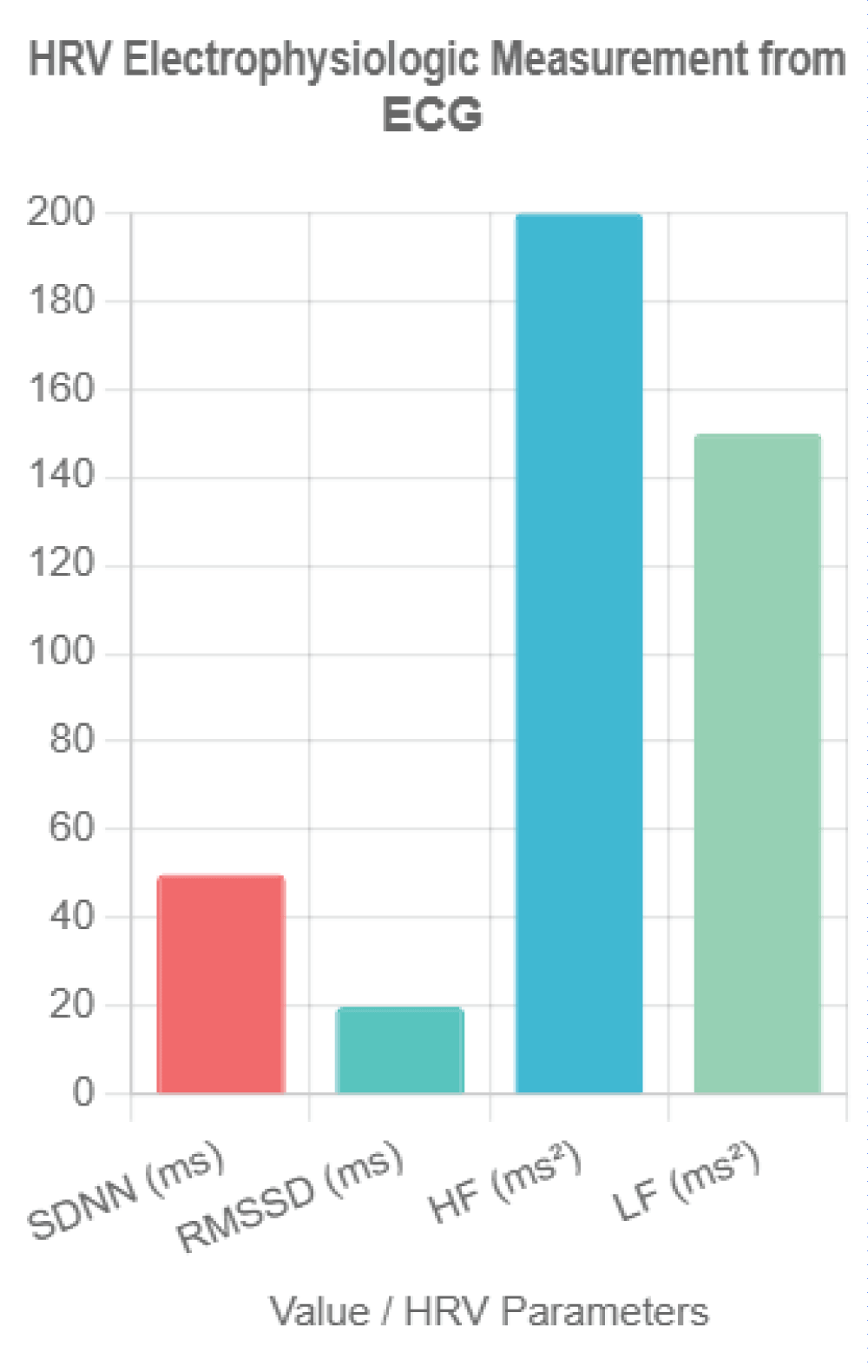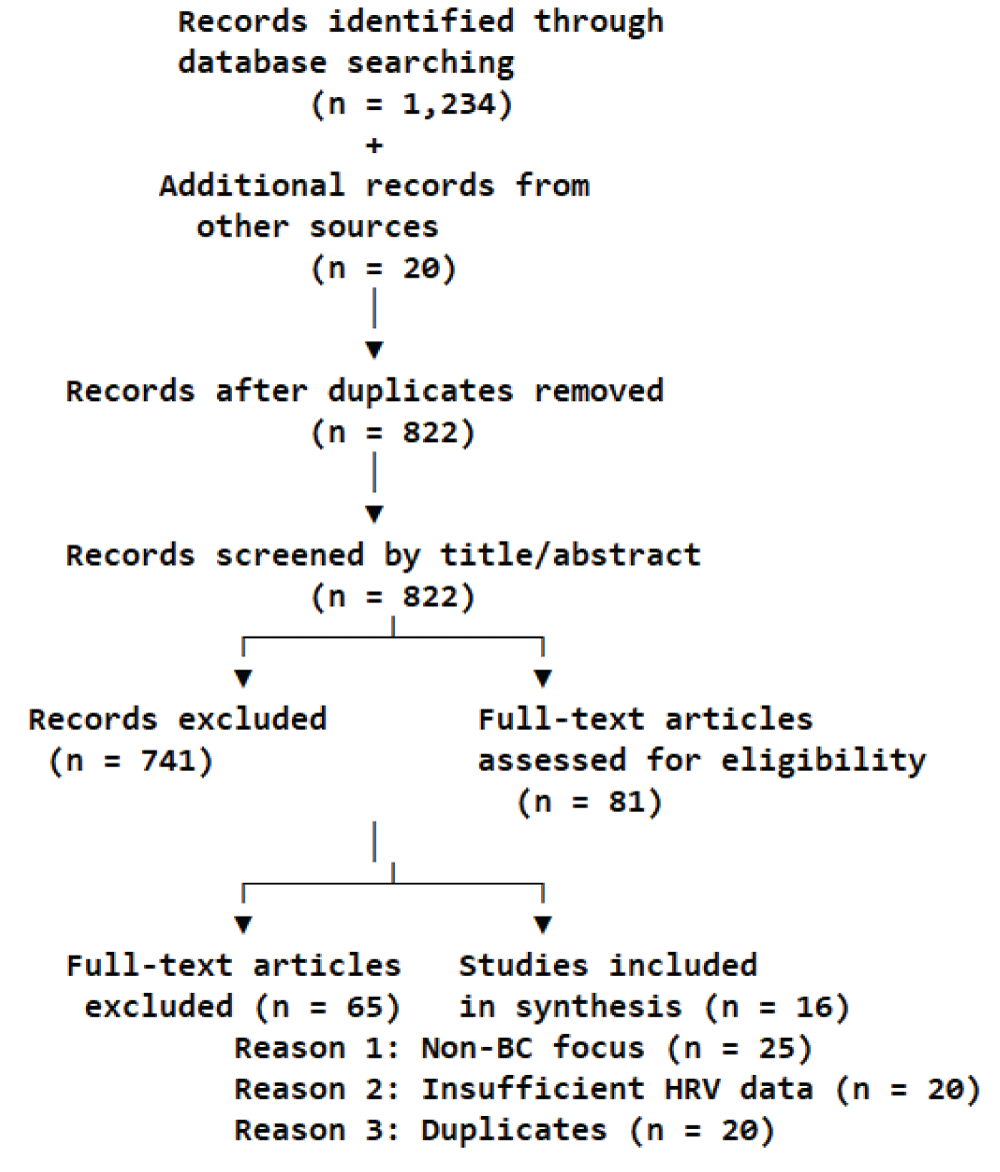Abstract
Heart rate variability (HRV), a non-invasive measure of autonomic nervous system (ANS) function reflecting vagus nerve activity, is a promising biomarker in breast cancer (BC) management. This PRISMA-guided systematic review evaluates HRV electrophysiologic data from 5-minute vs. 24-hour ECG recordings in BC diagnosis and therapy follow-up, emphasizing the vagus nerve’s role in inflammation and tumor progression. Completing a search of PubMed, Scopus, Web of Science, and Embase (2009 - 2025), 16 studies (n = 3,412 participants) were included. Lower HRV metrics (e.g., SDNN < 50 ms, RMSSD < 20 ms predicted relapse) correlated with advanced BC stages, elevated carcinoembryonic antigen (CEA), and poorer prognosis (HR = 0.62, 95% CI: 0.48 - 0.79). Chemotherapy-induced HRV reductions (e.g., SDNN decrease by 20%) predicted cardiotoxicity, while vagus nerve stimulation (VNS) improved HRV and reduced inflammation. HRV showed diagnostic sensitivity up to 80% with biomarkers. Additionally, meta-analysis was precluded due to significant methodological heterogeneity across studies. A narrative synthesis was conducted due to this heterogeneity; meta-analysis was not feasible due to inconsistent HRV protocols and outcome measures. HRV and vagal interventions hold transformative potential, necessitating standardized protocols and larger studies.









